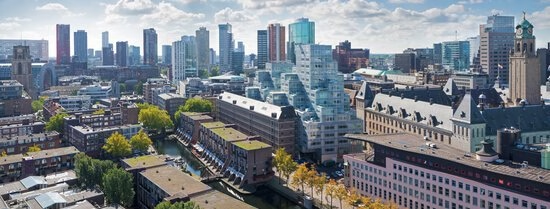The 2030 Agenda for Sustainable Development is a global initiative adopted by every United Nations Member State in 2015. This collective vision outlines a pathway towards peace and prosperity for people and the planet, both now and in the future. At its core, the 17 Sustainable Development Goals (SDGs) are an urgent call for action uniting developed and developing nations in a global partnership.
Cities and urban development receive recognition through Sustainable Development Goal 11 (SDG 11), which aims to "make cities and human settlements inclusive, safe, resilient and sustainable". Due to the cross-cutting nature of urban issues, the UN recognizes their impact on other SDGs, including SDG 1: No Poverty, SDG 6: Clean Water and Sanitation, SDG 7: Affordable and Clean Energy, SDG 8: Decent Work and Economic Growth, SDG 9: Industry innovation and infrastructure, SDG 12: Responsible consumption and production, SDG 15: Life on land, and SDG 17: Partnerships for the goals, among others (UN, 2015).
As an international institute specialising in urban development, IHS has made SDG 11 its flagship goal. Through its research, education, and advisory services, IHS works to address the critical challenges of urbanisation.
SDG 11 - Sustainable Cities and Communities

As reported by United Nations data and statistics under SDG 11, rapid urbanization in small cities and intermediate towns deepens inequalities and urban poverty. In 2020, an estimated 1.1 billion urban residents lived in slums or slum-like conditions, and an additional 2 billion people are expected to join them in the next 30 years, primarily in developing countries. Cities, occupying only 3% of the Earth's land, account for 60-80% of energy consumption and 75% of carbon emissions. Challenges include inequality, high urban energy consumption, and pollution. While progress has been made since the implementation of SDGs, issues, such as limited access to public transport, persist. Sustainable development in urban spaces is crucial to address these challenges, and individuals can contribute by actively engaging in city governance, advocating for necessary changes, and fostering sustainable practices.
How does IHS work towards the SDGs?
IHS specialises in three key areas that closely align with the Sustainable Development Goals (SDGs): urban sustainability and resilience, urban socio-spatial development, and urban economics and governance. Through our education, advisory, and research efforts, we actively contribute to achieving SDG 11 and many other SDGs.
The video below highlights our contributions to education, capacity-building, advisory services, research, publications, projects, and partnerships. IHS aims to raise awareness, foster knowledge creation, and bridge theory with practice. We challenge students and participants to think critically in the Erasmian tradition, turning knowledge into action through real-world engagement with diverse stakeholders globally.
At the university level, sustainability is embedded in all aspects of our operations—from the design of campus buildings and workspaces to food services and outdoor areas. Sustainability is more than a goal; it is a guiding principle in everything we do.

